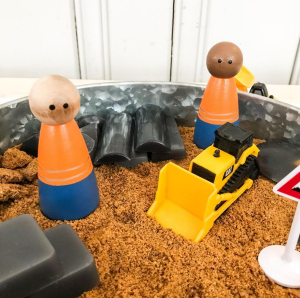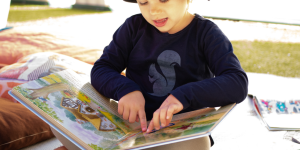Preschool is a time when children are actively exploring and learning about the world around them.
Hands-on activities are a great way to engage young children in learning and promote their overall development.
These activities not only keep children engaged and interested but also help to develop important skills in various areas such as cognitive, social, emotional, and physical development.
We will discuss quick hands-on activities for preschoolers that are engaging, age-appropriate, and promote learning in various developmental areas.
Sensory Bins:

Create a sensory bin by filling a container with items such as rice, beans, or sand, and then provide small shovels, cups, and other tools for children to explore the materials. This activity promotes sensory development and allows children to practice fine motor skills.
Nature Walks:

Take preschoolers on a nature walk around the school or nearby park. Encourage them to collect leaves, flowers, and rocks to bring back to the classroom. This activity promotes physical development and teaches children about nature.
Related: 20 Dynamic Blending Activities for Kindergarten
Playdough:

Provide playdough and various tools such as cookie cutters, rolling pins, and plastic knives. Children can use their imagination to create different shapes and figures, promoting creativity and fine motor skills.
Water Play:

Set up a water table with various containers, cups, and funnels. Children can explore the properties of water while practicing pouring and measuring skills.
Related: 20 Fun Dinosaur Preschool Activities & Crafts
Puzzles:

Provide age-appropriate puzzles for children to complete. This activity promotes cognitive development and problem-solving skills.
Building Blocks:

Provide different types of building blocks, such as wooden blocks or Lego. Children can build structures, promoting spatial awareness and creativity.
Painting:

Provide paint and paper for children to create their art. This activity promotes creativity and fine motor skills.
Cooking:

Have children help prepare a simple snack or treat, such as decorating cookies. This activity promotes social skills and teaches children about measurements and cooking techniques.
Storytime:

Read a story and then have children act it out with puppets or costumes. This activity promotes social and emotional development and allows children to practice language skills.
Musical Instruments:

Provide various musical instruments such as drums, shakers, and xylophones. Children can explore the different sounds and rhythms, promoting music appreciation and physical coordination.
Dress-up Play:

Provide a dress-up box filled with hats, scarves, and costumes for children to use their imagination and engage in pretend play. This activity promotes creativity and social skills.
Sorting And Matching:

Provide a variety of items, such as buttons or beads, for children to sort and match by size, color, or shape. This activity promotes cognitive development and fine motor skills.
Obstacle Course:

Set up an obstacle course with pillows, tunnels, and other items for children to climb over and under. This activity promotes physical development and spatial awareness.
Science Experiments:

Conduct simple science experiments such as making slime or baking soda and vinegar reactions. This activity promotes curiosity and scientific thinking.
Gardening:

Have children plant and care for a small garden or indoor plants. This activity promotes responsibility and teaches children about the natural world.
Dramatic Play:

Provide props such as a cash register, phone, and kitchen items for children to engage in pretend play. This activity promotes creativity and social skills.
Yoga:

Lead children in simple yoga poses and breathing exercises. This activity promotes physical coordination and mindfulness.
Letter And Number Recognition:

Provide letter and number cards for children to identify and match. This activity promotes cognitive development and prepares children for future academic success.
Building With Recycled Materials:

Provide recycled materials such as cardboard boxes and toilet paper rolls for children to build structures. This activity promotes creativity and environmental awareness.
Sensory Painting:

Mix paint with different textures such as sand or cornstarch and provide various tools for children to create textured artwork. This activity promotes sensory development and creativity.
Conclusion
Hands-on activities are an effective way to engage preschoolers in learning while promoting their cognitive, social, emotional, and physical development.
By providing a variety of activities that are engaging and age-appropriate, educators and parents can create an environment that fosters creativity, curiosity, and a love of learning.
These activities can also help to prepare children for future academic success while providing them with important life skills.

